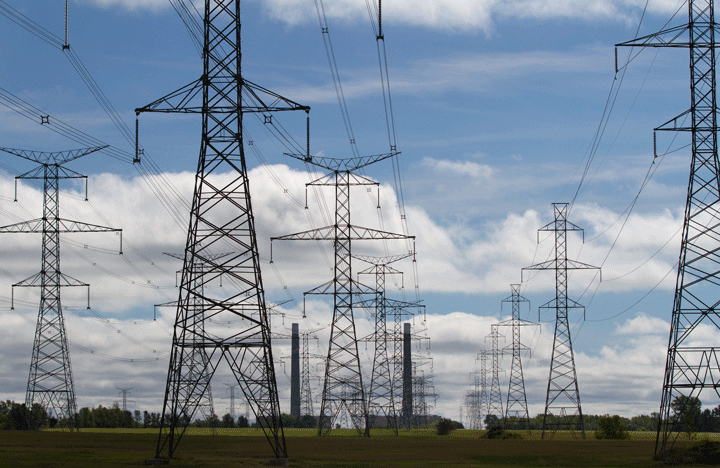TORONTO – The Ontario Chamber of Commerce is calling on the provincial government to take steps to curb rising electricity prices.

The organization representing the province’s businesses is issuing a report saying hydro costs are one of the most pressing challenges for Ontario’s economy.
The report says industrial electricity prices have risen 16 per cent since 2013 and are slated to climb 13 per cent higher over the next five years.
The ministry of energy says Ontario’s industrial electricity rates are competitive with jurisdictions across North America and the government has introduced several programs to help businesses reduce electricity costs.
Chamber president and CEO Allan O’Dette says there’s no easy way to bring prices under control, but believes one key step is for the Liberal government to be more transparent about how costs are calculated.
He says more disclosure about peak and off-peak times could help all consumers keep their hydro expenses under control.
O’Dette also says the government should reverse its decision to remove a debt retirement charge from residential bills starting next year, adding it’s unfair to leave businesses shouldering the burden of discharging debt.
“Year over year, the cost of electricity continues to rise,” O’Dette said in a telephone interview. “Has the sky fallen? No it hasn’t…I think what we’re saying here is the majority of our members are raising electricity prices as a major, major concern.”
A spokesman for the ministry of energy touted various programs that he said are “directly assisting businesses in maximizing the cost-saving benefits of conservation.”
“While we seek to reduce costs through conservation initiatives and prudent system planning, (Premier) Kathleen Wynne and the Ontario Liberals have also implemented a wide range of programs to reduce the cost of electricity for businesses,” Dan Moulton wrote in a statement.
The report, compiled by seeking input from local chambers of commerce over the past year, lists several recommendations the government could adopt to keep prices in check.
O’Dette said the thorny policy issues involved made it difficult to reach a consensus, but the two primary suggestions were widely agreed upon.
Transparency, O’Dette said, is the most glaring oversight in the government’s current approach to managing the province’s electricity. Business and consumers, he said, are left in the dark as to the complex rules that dictate how a hydro bill is calculated and are therefore unable to change their usage patterns to keep the total down.
He also cited the pending partial sale of Hydro One, a move opposition parties are decrying as a surefire way to send electricity costs through the roof.
The government has announced plans to sell 60 per cent of the giant utility that also serves as a local electricity distributor for 1.3 million customers. The Liberals hope the sale will raise $9 billion, $5 billion of which is earmarked for hydro debt.
O’Dette, however, said the facts on the prospective deal are so scanty that the chamber couldn’t even factor it into its report.
“The reality is we really don’t know too much about the Hydro One sale,” he said. “What we’re calling on is a little bit more transparency around that.”
The report’s other key recommendation focuses on the debt retirement charge, a fee averaging $5.60 a month that has been in place since 2002 to defray the costs of old nuclear plants.
The government has announced that the charge will come off residential bills starting Jan. 1, 2016, while businesses will continue to pay the fee.
O’Dette said the move places an unfair burden on the province’s economy and urged the Liberals to leave the charge in place for all hydro users until the debt is paid down.
The ministry of energy said it would not be following the chamber’s recommendation on the debt retirement charge.
“The Ontario Chamber of Commerce is recommending that hardworking Ontario families and seniors pay higher electricity bills, and this is not something our government will do,” Moulton wrote.
The report argues that reduced hydro prices are necessary to keep businesses competitive, saying several pending government initiatives will join forces to create a tough economic climate in the province.
The chamber cites an increase to minimum wage, an Ontario Retirement Pension Plan in the works, and a review of the Labour Relations Act as potential drags on the province’s businesses.



Comments